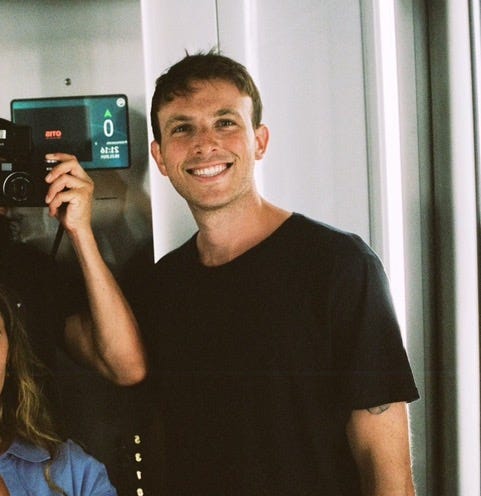Drawing on the diary as a medium of both confessional interiority, and visceral engagement with the physical world - guest edits ask creative people to share What They Did and What You Should Do.
Introducing Gordon Glasgow (Instagram) (12 Questions by Gordon Glasgow)
I feel as though I owe Gordon more of an introduction. Gordon Glasgow is a writer in New York. He writes and edits 12 Questions by Gordon Glasgow - a publication that is seemingly self explanatory in its title, but far more layered in actuality. The premise is; Gordon Glasgow interviews other writers and artists - he asks them 12 questions and they respond. I think the most interesting parts of these interviews, though, are Gordon’s introductions - expansive short stories, letters, and diary entries in their own right, investigating the subtle (or not) ways in which his perspective and every day life is influenced and interrupted during the process of interrogating his subjects mind and work.
Gordon’s interviews and introd…
Keep reading with a 7-day free trial
Subscribe to Chloe Pingeon to keep reading this post and get 7 days of free access to the full post archives.



